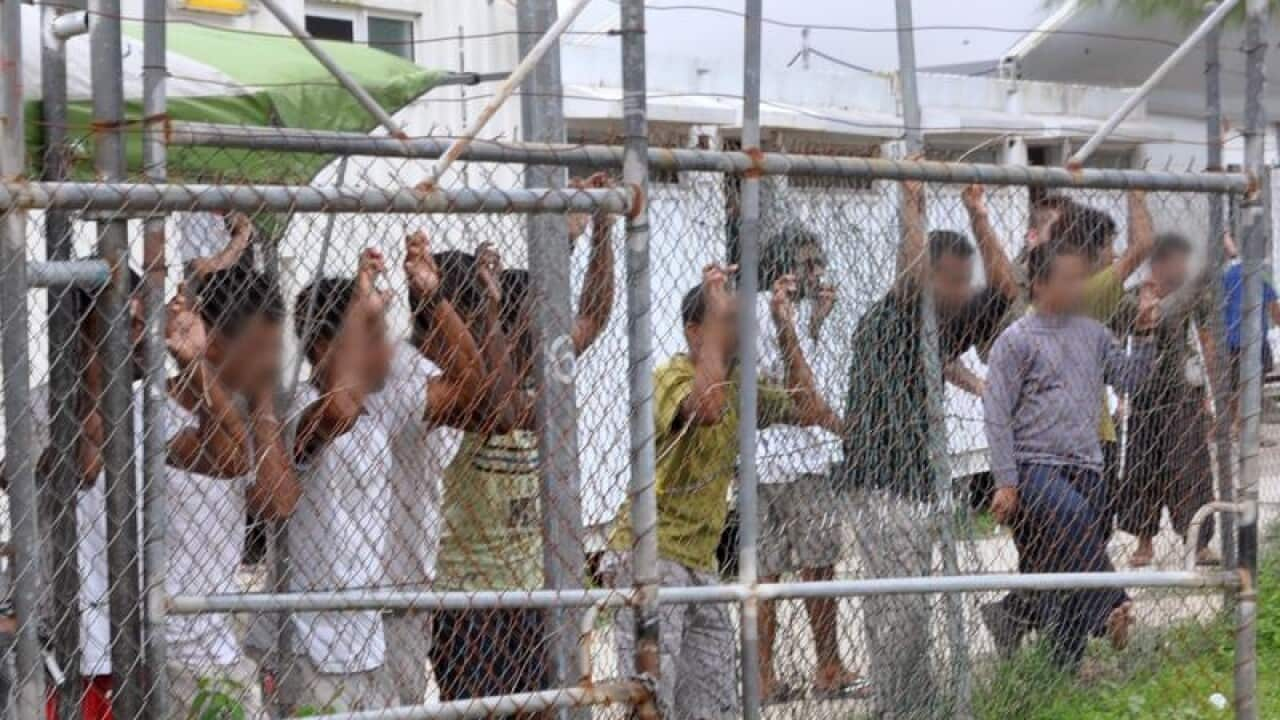Australia has been applauded for legalising same-sex marriage and tackling the abuse of children behind bars, but reprimanded for warehousing asylum seekers in "abysmal" conditions offshore.
Human Rights Watch, in its annual report into practices across more than 90 countries, says Australia has made significant progress in the past year but serious issues remain unresolved.
"The Australian parliament's long overdue enactment of same-sex marriage law gives all Australians a reason to celebrate," said Elaine Pearson, the national director of Human Rights Watch.
"But this needs to be tempered by the shocking failures of the juvenile justice system in the Northern Territory and the abysmal treatment of asylum seekers sent offshore."
On a global scale, the report stressed the importance of world leaders pushing back against demagogues and their abusive policies towards minorities, human rights and democratic institutions.
In a chapter dedicated to Australia within its 643-page report, Human Rights Watch expressed serious concerns for the roughly 2000 asylum seekers and refugees being held on Manus Island and Nauru.
The organisation said many detainees suffered dire mental health problems exacerbated by their detention, and were enduring lengthy delays and denials of medical care.
It is also worried those being held offshore are being exposed to regular episodes of violence, threats and harassment from local residents.
Human Rights Watch was pleased with a royal commission's recommendations aimed at ending systemic abuse against children in detention in the Northern Territory.
However, it was scathing of dramatically disproportionate incarceration rates among indigenous Australians.
Aboriginal and Torres Strait Islanders are 13 times more likely to be imprisoned than the non-indigenous population, while indigenous youths are 25 times more likely.
Human Rights Watch said half the prison population had a disability and those inmates were experiencing bullying, harassment, physical and sexual violence, made worse by a lack of staff sensitivity and training.
The organisation noted the Turnbull government's rejection of establishing an indigenous advisory body to parliament, and also voiced dismay at the passage of several pieces of "Draconian" counter-terror legislation.
It also cited UN concerns about inadequate protections against violence towards Aboriginal and Torres Strait Islander women, and the plight of asylum seekers and refugees brought to Australia for medical treatment.
Human Rights Watch said Australia had acted inconsistently and rarely showed leadership at the UN on human rights issues, particularly in relation to countries it dealt closely with on border security and trade.
In October, Australia was elected to the UN Human Rights Council for a three-year term.
"To be a credible leader on the global stage, Australia needs to address serious shortcomings in its own human rights record," Ms Pearson said.

